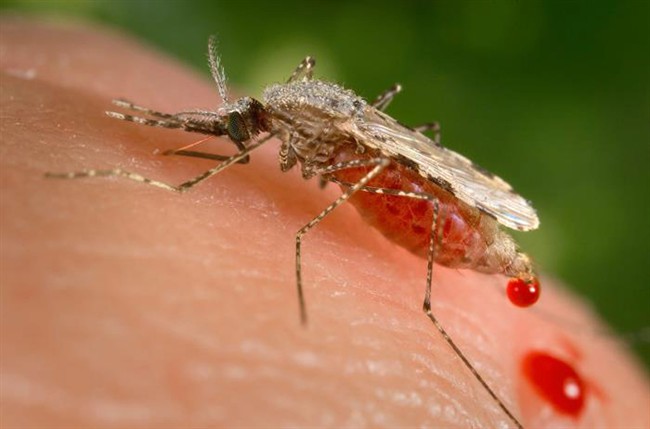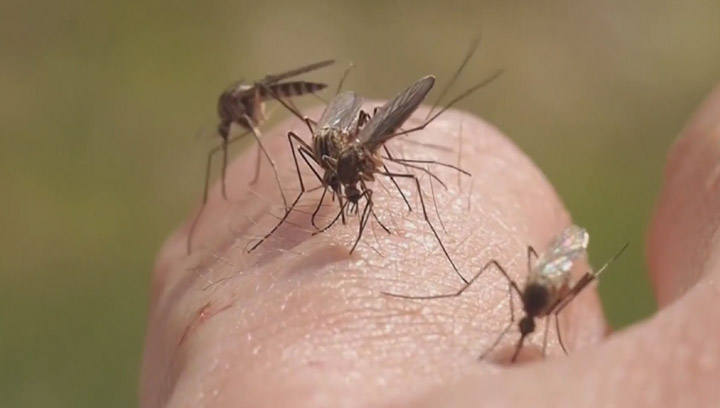The winter of 2015–2016 was the second warmest in 69 years — straight across the country. But what does that hold for spring?

This winter’s mild weather was courtesy of El Niño, which resulted in record temperatures set across several provinces.
“It was almost as if winter was cancelled,” said David Phillips, senior climatologist with Environment Canada.
READ MORE: El Nino—What it is and why it matters
Indeed, the warm winter was enjoyable: no run of devastating winter storms (or at least very few); lower heating bills; fewer car accidents. But everything has consequences.
Insects
According to several entomologists (those who study insects), the warm winter will have an effect on bugs. But it won’t be the same all around.
“Mosquitoes, black flies, etc. that overwinter in immature stages will all become active earlier in the spring/summer,” said Gard Otis, a professor at the University of Guelph’s School of Environmental Sciences.
That’s because insects enter into a state of “suspended development,” Otis said.
“The warmer it gets, the more rapidly they develop because they are cold blooded and cannot increase their temperature above their surroundings. On warm days they develop more than on colder days, yet once a certain number of days above their threshold for development has been reached (termed the degree-days for the species), they emerge as adults. In general, this translates into earlier emergence of most insects. ”
Brent Sinclair, an associate professor at Western University’s Biological and Geological Sciences, we could see positive effects when it comes to insects. And that’s as a result of both the warmer winter and mild fall.
Invasive species — which aren’t adapted to the ups and downs of our seasons — aren’t used to our climate and may read the warmer weather as an early signal of spring, when, in fact, the weather may change rapidly.
“I predict that invasive pests will be hit a little harder,” Sinclair said. “Native species will do okay; if there aren’t any late frosts.”
Allergies
Less snow and warmer weather means that we will see the earlier blossoming of trees and plants.
“In B.C., they’re already recording an earlier allergy season,” Phillips said.

In Ontario, trees are already beginning to produce pollen with cedar, juniper, elm and alder trees already producing high amounts. And it’s the same in Calgary.
That’s bad news for allergy sufferers: it means an earlier start and likely a longer season.
Agriculture
Farmers might be grateful for the warmer winter.
The ground may not have frozen far down and farmers may be able to start plowing earlier than normal, and definitely earlier than the over the past two years.

“There’s been lack of winter kill, too,” said Phillips. “That also translates to good news for those in the horticultural and winery industries.”
Farmers also are not likely to see the flooding that occurs during a spring melt, as a result of a heavy snowpack.
“When you get the kind of soft winter we’ve had, you get fewer negative impacts,” Phillips said.
The look ahead
As Canadians, we often think that we’ll get punished for having a good winter. But Phillips said that we have to stop thinking like that: Mother Nature doesn’t hold grudges.
However, with a weakening El Niño, that means we’re likely to see a more active Atlantic hurricane season. And that might impact Atlantic Canada.
And yes, we may experience a few cold snaps (as will be the case over the coming weekend across eastern Canada, including Ontario and Quebec), but spring is nigh. So get ready for Canadian favourites: blackflies and mosquitoes. And try not to complain too much.
WATCH: Looking ahead to warmer weather—Anthony Farnell gives spring forecast




Comments